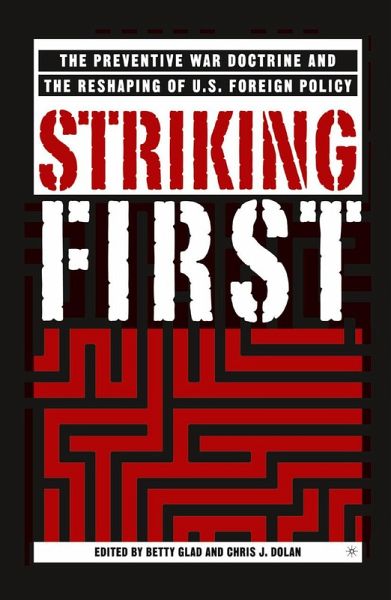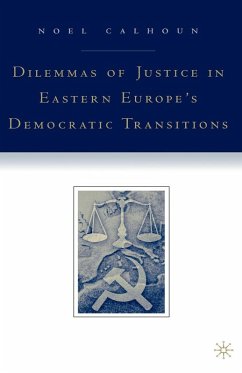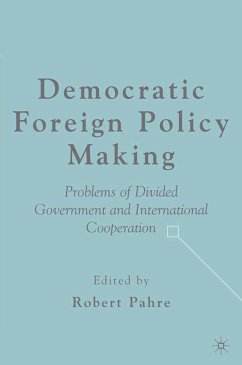
Striking First (eBook, PDF)
The Pre-emption and Preventive War Doctrines and the Reshaping of US Foreign Policy
Redaktion: Glad, B.; Dolan, C.

PAYBACK Punkte
20 °P sammeln!
How have the September 11th terrorist attacks and the subsequent U.S. led war on terrorism impacted American foreign policy at home and abroad? The consistent theme throughout this collection of essays is that September 11th was a watershed event, which sparked a redefinition and reassessment of U.S. foreign policy, governmental institutions, and the public's sense of internal and external security. The Bush Administration's endeavor to remake American foreign policy with an emphasis on a preemptive, first strike doctrine and its attempt to build an internal security apparatus are not only con...
How have the September 11th terrorist attacks and the subsequent U.S. led war on terrorism impacted American foreign policy at home and abroad? The consistent theme throughout this collection of essays is that September 11th was a watershed event, which sparked a redefinition and reassessment of U.S. foreign policy, governmental institutions, and the public's sense of internal and external security. The Bush Administration's endeavor to remake American foreign policy with an emphasis on a preemptive, first strike doctrine and its attempt to build an internal security apparatus are not only consequential in the war on terrorism, such efforts are challenging the very fundamentals of American political life and its perception throughout the world.
Dieser Download kann aus rechtlichen Gründen nur mit Rechnungsadresse in A, B, BG, CY, CZ, D, DK, EW, E, FIN, F, GR, HR, H, IRL, I, LT, L, LR, M, NL, PL, P, R, S, SLO, SK ausgeliefert werden.












